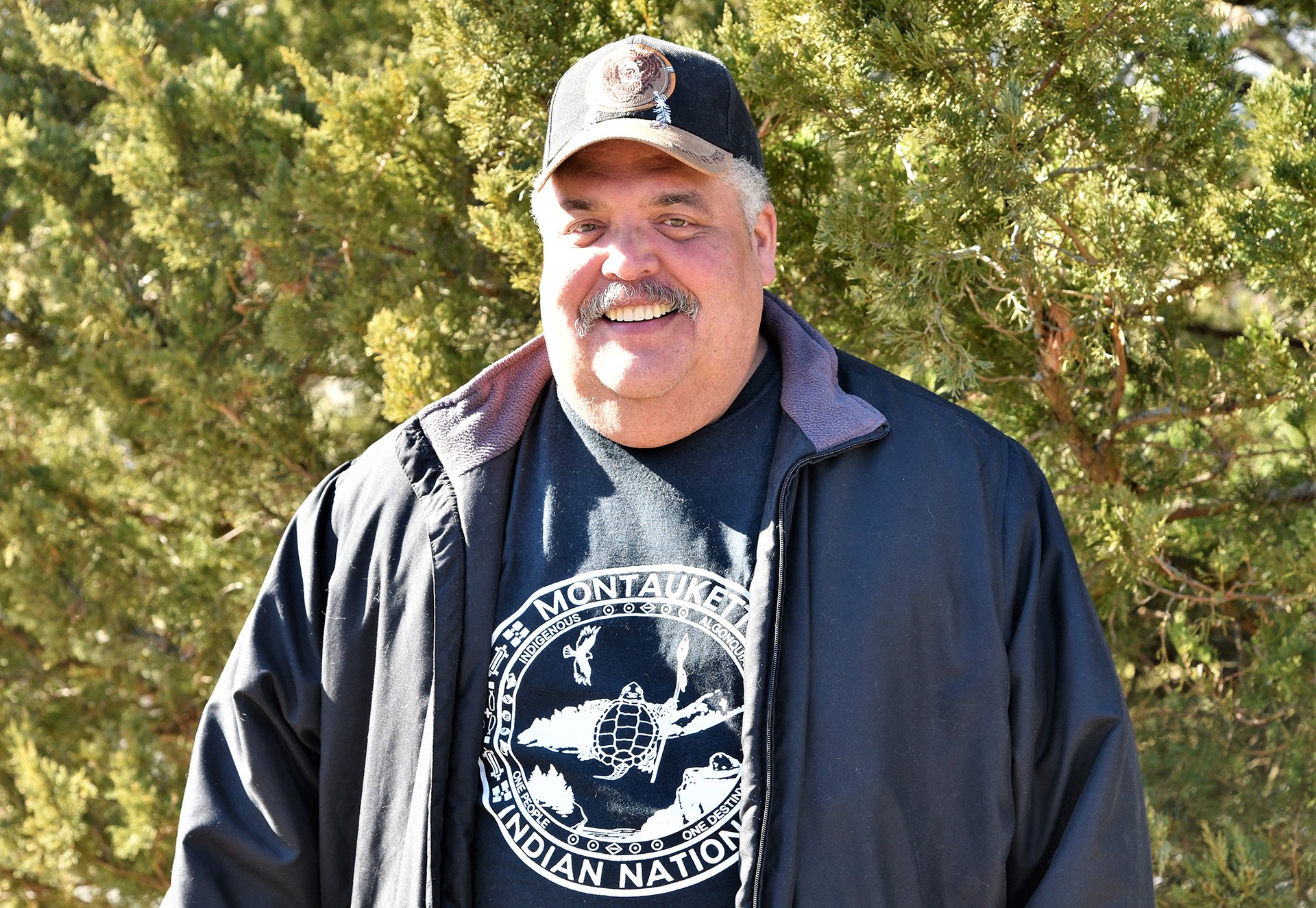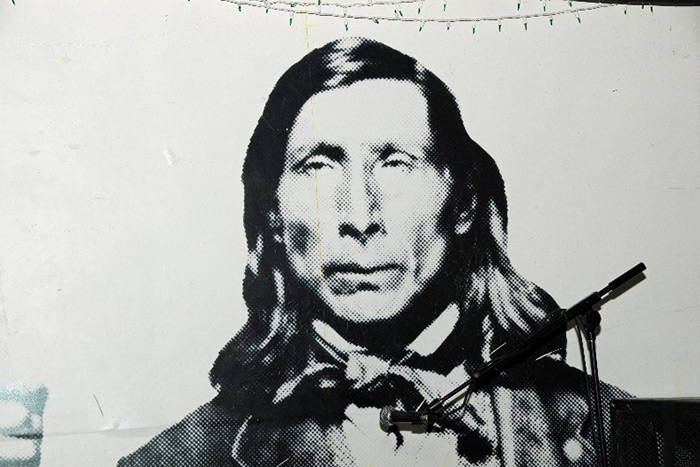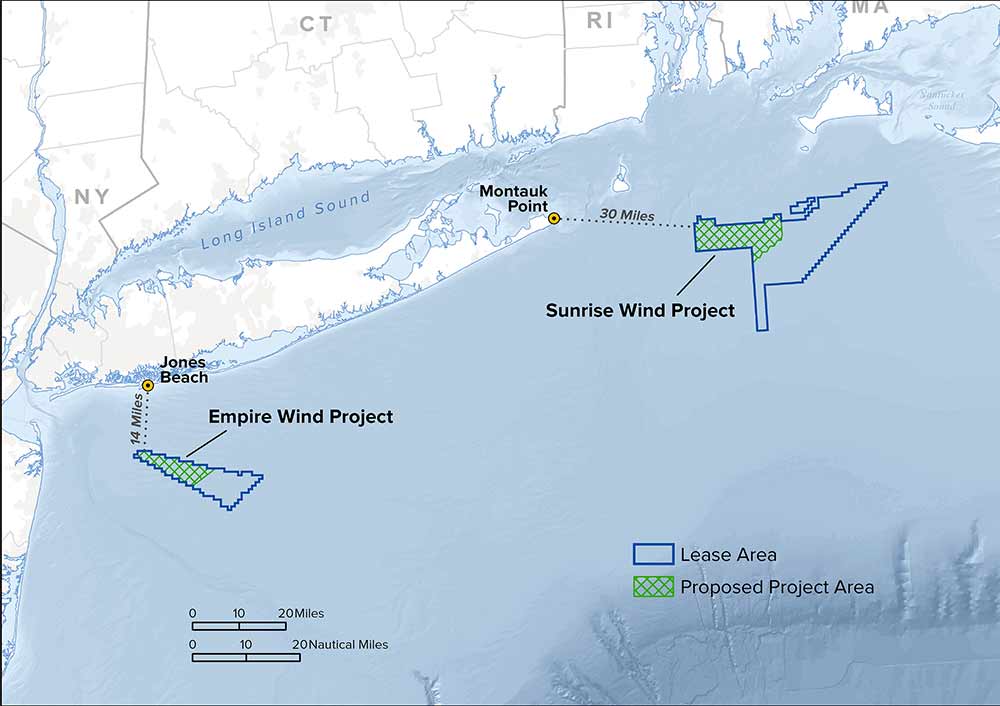Montaukett Struggle: Hochul Vetoes Latest Bid to Recognize East End Tribe

The Montaukett Indian Nation’s hopes were dashed that New York State would finally correct the injustice dating back more than a century in which a judge erroneously declared the tribe was extinct.
But despite the fact that Gov. Kathy Hochul vetoed on December 17 a bill that would have granted state recognition to the Montauketts, tribal leaders remained optimistic they will finally gain their long-sought status in 2023. The tribe also plans to build on their momentum and seek federal recognition, its leaders told Dan’s Papers.
“In January we are going to file a letter of intent with the federal government,” says Sandi Brewster-Walker, the executive director and government affairs officer for the tribe. She noted that tribal members met with the Hochul administration after the veto to move the process forward.
If successful, the Montaukett Indian Nation would be the third Native American tribe on Long Island to win state recognition and the first to do so in more than two centuries. The state formally recognized the Shinnecock Indian Nation, whose territory is in Southampton, in 1792 and the federal government followed suit in 2010. The Unkechaug Indian Nation, who call the Poospatuck Reservation in Mastic home, were recognized by the state in 1777, but have not won federal recognition. The Shinnecock and Unkechaug are among nine tribes recognized statewide.
The bill Hochul vetoed would have effectively granted tribal recognition to the Montauketts, who have been fighting for acknowledgement since the tribe lost a Suffolk County court ruling in which a judge stripped them of their land and declared the tribe extinct 112 years ago. The state Legislature passed the same bill in 2013, 2017, and 2018, but then-Gov. Andrew Cuomo vetoed it, arguing the state Department of State (DOS) should conduct the administrative process and make the final determination despite legislative precedent of granting Indian nation recognition. Nearly a decade later, DOS has yet to make its determination.
Tribal leaders and supporters were hopeful that the change of administration — Hochul’s old boss Cuomo resigned amid a sexual harassment scandal last year before she was elected to keep the job last month — would help their chances of the bill being signed into law. But the new governor hit the brakes.
“Since 2018, the Department of State [has] received documentation from two different groups of individuals, both declaring to be the Montaukett Indians,” Hochul wrote in her veto message. “While both groups have begun to participate in the acknowledgement process, to date, neither group has provided the [DOS] with necessary information requested from each group. This bill would have the [DOS] bypass its thorough and careful consideration and instead grant state recognition to one of the groups petitioning for recognition.”
State lawmakers who represent the East End and fought for the bill were not pleased.
“The historic injustice done to the Montauketts when their very existence was denied by a state court over 100 years ago is obvious for all to see,” said state Assemblyman Fred W. Thiele, Jr. (D-Sag Harbor). “The governor had the opportunity to right this wrong once and for all and turned away. The failure to recognize the Montauketts will remain a stain on New York’s history and this governor’s legacy until it is finally corrected.”
State Senator Anthony Palumbo (R-New Suffolk) agreed.
“I was very disappointed to learn that Governor Hochul has vetoed legislation … which would have granted state recognition and acknowledgement of the Montaukett Indians,” said Palumbo. “The bipartisan measure passed unanimously in the State Senate this year and we were hopeful that the new governor would finally sign this important legislation into law, after it was vetoed … by her predecessor. I will continue to fight for this legislation and work to address this historic injustice and provide the Montaukett Indians with the recognition they deserve.”
Hochul left the door open in her veto message to try again.
“Vetoing this bill does not preclude [people] with Montaukett heritage from continuing to practice their customs and traditions and teach their progeny the values of their culture, or from supplying the persistent information requested by the [DOS],” she wrote. “My administration urges all individuals who believe they should be formally recognized as Montaukett Indians to continue to work with the [DOS] and provide the necessary documentation through the existing process.”
“Another year added to our struggle to right a wrong,” Montaukett Chief Robert Pharaoh wrote in response to the news. “During our 113-year … fight for reinstatement, our Montaukett Indian Nation will continue to work with the State of New York on the issue of our recognition/reinstatement; to give NYS Governor Hochul any additional information on the history of our nation and people, so she can make her historic decision.”
The bill was one of three pertaining to the East End that Hochul vetoed on the same day. She also vetoed a bill that would prohibit deer hunting on state lands adjacent to a wildlife rehabilitation center in the Town of Southampton, where there is an abundant population of white-tailed deer.
“Hunting opportunities are already heavily regulated in Suffolk County, and the Department of Environmental Conservation (DEC) has the statutory authority to regulate hunting in New York,” she wrote in her message on the deer bill. “This bill would undermine DEC’s statutory authority over wildlife governance and would establish a problematic precedent.”
Thiele blasted that veto as well.
“There can be little doubt that the permitting of hunting adjacent to the Evelyn Alexander Wildlife Center has presented a threat to public safety which has existed for years,” he said. “Most notably, was the incident a year ago when a deer was shot on the center’s property and bullet holes were found in occupied buildings and structures on the center’s property. The state [DEC] refused to eliminate this inherent conflict. Now the state DEC is behind the veto of this common sense legislation to avoid another life threatening incident.”
Palumbo echoed the assemblyman’s sentiment.
“While I understand the governor’s concerns, this bill would have provided an important buffer for the animal sanctuary,” said Palumbo. “As we work to reduce the region’s deer population, it is important to take a balanced approach — one that keeps residents safe while enhancing efforts to protect farmers, motorists and local residents from deer and the tick-borne illnesses they spread.”
The third East End bill the governor vetoed aimed to promote the leasing of certain state-owned underwater lands for seaweed cultivation.
“Last year, I signed a bill that amended the Environmental Conservation Law to authorize seaweed cultivation in underwater lands ceded to Suffolk County in Gardiner’s and Peconic Bay,” she wrote in that veto message, noting that Suffolk’s pilot program for kelp cultivation runs through 2026. “There is currently no commercial scale for seaweed cultivation in New York. Assessing potential environmental impacts, commercial and recreational user conflicts and spatial planning must be undertaken before leasing is considered on state-owned underwater lands. It is premature to create a broader leasing program for seaweed aquaculture on state-owned underwater lands at this time as the state is still considering a pilot program.”
Theile said the bill would further promote a growing industry that can help restore water quality and fish habitats on Long Island’s East End.
“As New York continues to fight climate change and nitrogen pollution, this bill would have allowed more kelp farmers and local enterprises to participate in a growing industry that can provide substantial environmental benefits for the state,” he said. “The governor’s decision to veto this legislation is a missed opportunity to boost our economy and create new jobs for our maritime businesses.”




